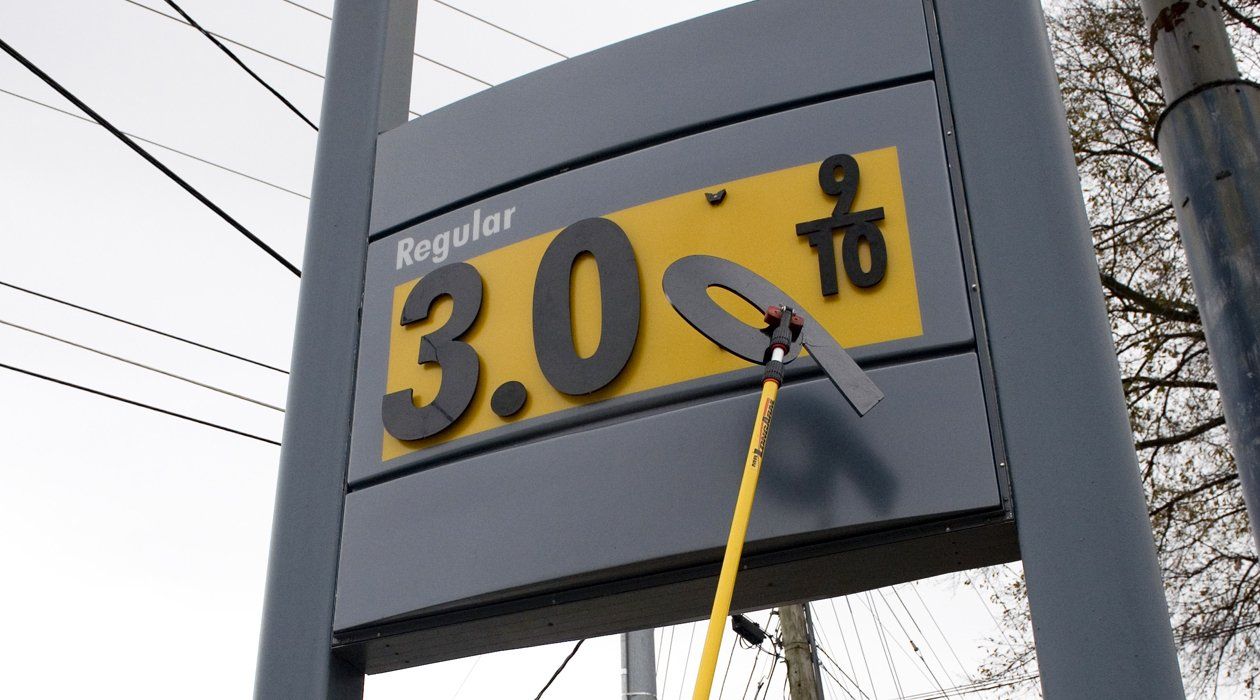
Never underestimate Americans' capacity for denial. The upheaval in Egypt reminds us of lessons that, despite decades of warnings, we have consistently sidestepped: the United States and the rest of the world will depend on oil for the indefinite future, global oil markets remain hostage to political crises that cannot be predicted or controlled, and we have not taken the prudent steps that would reduce—though not eliminate—our vulnerability to catastrophic oil interruptions.
Just what Egypt's crisis will do to oil markets is, as yet, unclear. Driven by cold weather and strong demand from developing countries, oil prices were already increasing before Egyptians took to the streets. After averaging about $2.80 a gallon for most of last year, U.S. gasoline prices pierced the $3 barrier in December. Prices rose further on the turmoil, but the gains could be short-lived. Egypt produces only about 700,000 barrels a day. That's not much compared with global demand of nearly 90 million barrels daily (mbd). If all of Egypt's production halted, it could be replaced because the world now has about 4 mbd of surplus capacity elsewhere.

A greater risk involves oil shipments. The Suez Canal and the Sumed (for Suez-Mediterranean) pipeline together now move about 3 mbd between Asia and Europe. If these supplies were blocked, prices would almost certainly rise. But, again, accommodations would be made. Tankers would be rerouted; shipments via other pipelines would increase.
The real flash point would occur if a cascade of political turmoil cut production from major suppliers: Saudi Arabia (present output: 8.5 mbd), Kuwait (2.3 mbd), Iran (3.7 mbd), Iraq (2.4 mbd), or Algeria (1.3 mbd). This danger will remain no matter how the present crisis ends.
What can we do? Well, two things: decrease oil consumption, preferably by a stiffer gasoline tax, and increase production, preferably by less hostile regulation. The Obama administration isn't doing either. Instead, it's touting a goal of 1 million plug-in electric hybrids by 2015. This is more public relations than policy. The goal is probably unrealistic; first-year sales of the Chevy Volt may reach 25,000. Even if the 1 million were attained, the oil savings would be tiny—perhaps 40,000 barrels a day, about two tenths of 1 percent of U.S. consumption of 19 million barrels a day. There are already 240 million cars and light trucks using gasoline.
By contrast, lost production from restrictions on drilling in the Gulf of Mexico could total 200,000 barrels a day in 2012, by one government estimate. The administration overreacted to the Deepwater Horizon blowout. There hasn't been much encouragement of onshore drilling, either, despite better prospects. In 2009, domestic oil production rose for the first time since 1991, in part because higher prices and new drilling techniques (hydraulic fracturing, horizontal drilling) made it profitable to extract once inaccessible oil. Production in North Dakota's Bakken field has surged; there are guarded hopes for gains in Texas's Permian Basin.
A higher gasoline tax—gradually introduced to avoid wrecking the economic recovery—would dampen wild swings in fuel prices and push consumers to buy the more fuel-efficient vehicles that the government is ordering auto companies to make. Americans have traditionally preferred bigger vehicles and, without the prod, might cling to old habits. There is a convergence here between energy and budget policy. An energy tax would help both. It would improve oil security and, with spending cuts, curb budget deficits. Neither the Obama administration nor congressional Republicans seem willing to grasp the possibilities.
Oil isn't going quietly into the night. We need to contain our addiction, even if we can't end it. A recent ExxonMobil study projects that the number of light-duty vehicles worldwide will grow 50 percent to 1.2 billion by 2030, with two fifths of the increase in China. Most will use gasoline. Competition for global oil supplies will intensify. We cannot escape that reality, even if we ignore it.
Robert Samuelson is also the author of The Great Inflation and Its Aftermath: The Past and Future of American Affluence and Untruth: Why the Conventional Wisdom Is (Almost Always) Wrong.
Uncommon Knowledge
Newsweek is committed to challenging conventional wisdom and finding connections in the search for common ground.
Newsweek is committed to challenging conventional wisdom and finding connections in the search for common ground.





